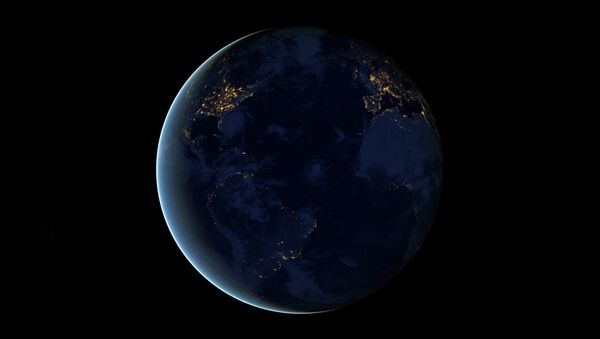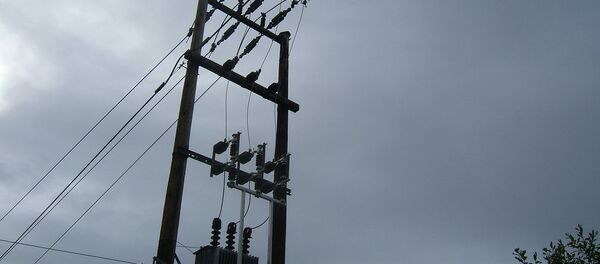The event aims to raise awareness about climate change among individuals, governments and businesses and urge them to take steps to reduce greenhouse gas emissions and save energy.
Earth hour is a voluntary action. Individuals, organizations, municipalities, businesses and everyone can participate.
During Earth Hour, hundreds of millions of households and iconic buildings around the world turn off their lights in a call to protect the Earth's natural resources.
Typically, each individual decides what electrical appliances to turn off and how many, wherever they are – at home or in the office. Action organizers recommend turning off overhead lights in rooms, outdoor lighting that does not impact safety, decorative lights, neon signs for advertising, televisions and desk lamps. City authorities can help turn off architectural lighting around city sights.
The one-hour lights-off event itself will not visibly improve the environmental situation but organizers believe the action should bring the people of our planet closer to understanding that energy saving will ultimately help reduce the volume of noxious emissions in the atmosphere.
The standard Earth Hour '60' logo represents the 60 minutes of Earth Hour when people focus on the impact we have on our planet and take positive action to address the environmental issues we face. For Earth Hour 2011 the "60+" logo was introduced to represent a commitment to add a positive act to Earth Hour for the sake of the planet that goes beyond the standard commemorative hour. Take on the "plus" and make a personal contribution to improving the environment, the WWF suggests.
Earth Hour was first held in 2007 in Sydney following an initiative by WWF Australia. Over 2 million people participated. The following year 35 countries around the world joined Earth Hour, and the action was supported by over 50 million people. The lights went off outside the Colosseum in Rome (Italy), the Golden Gate Bridge in San Francisco (US) and many other sights.
More and more countries join Earth Hour every year. In 2014, it involved about 2 billion people from over 160 countries. At 8:30 pm lights were turned off outside iconic buildings such as Big Ben (UK), Sydney Opera House (Australia), the Blue Mosque in Istanbul (Turkey), the Acropolis of Athens (Greece), St. Peter's Basilica in the Vatican, the Eiffel Tower in Paris (France), the Empire State Building and Times Square in New York City, Niagara Falls, Los Angeles International Airport (US) and many others.
In Russia, the event was first held in 2008. Since 2011, between 16 million and 20 million people take part in it.
In 2014, about 20 million Russians in over 120 cities participated in the event.
Earth Hour is supported by the Russian Presidential Executive Office, the Ministry of Natural Resources and Environment, and Moscow's Department for Environmental Management and Protection.
In Moscow's Red Square, architectural lighting on the History Museum, GUM department store, Saint Basil's Cathedral and a section of the Kremlin Wall was turned off; only the ruby stars and the backlighting of the presidential flag were left on. The lights outside some 400 buildings also went out, including the Russian Government House, Christ the Savior Cathedral, the State Duma, and certain Moscow skyscrapers.
Energy consumption during Earth Hour in Moscow was reduced by 384 megawatts, with a total saving of more than 1.5 million rubles ($42,400 at the March 2014 rate).
As part of the Earth Hour event, every country highlights what is the most important issue for it at that given moment.
In 2012, WWF Russia collected over 120,000 signatures under a petition for a law on the protection of the seas against oil pollution. In late 2012, a law was signed by the Russian president and came into force on July 1, 2013.
In 2013, 130,000 signatures were raised under a petition for a complete ban on commercial logging in protected forests.
In 2014, WWF Russia appealed for help for certain rare animal species. Over 3.8 million rubles ($107,000) and 115,000 signatures were raised in support.
In 2015, WWF Russia is holding a campaign under the slogan Time to Think Differently, calling for a freeze on environmentally hazardous and costly projects in the Arctic. The Fund is collecting signatures under an appeal to the Russian president to impose a 10-year moratorium on the development of new oil fields in the Arctic shelf.
Environmentalists believe the development of Arctic oil fields not only carries high environmental risks but has also become unprofitable amid plunging oil prices. At the same time the moratorium will help re-funnel government support and oil and gas companies resources to projects on land that are economically more beneficial and environmentally less dangerous.
WWF Russia Director Igor Chestin believes that the moratorium will help address a number of environmental concerns, which should prevent or at least minimize the negative impact of Arctic operations on the environment.




